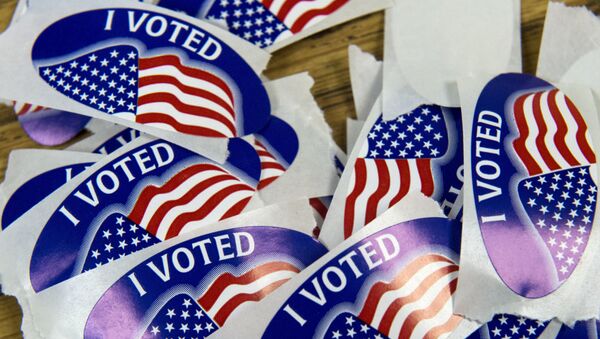The concerns come after the Democratic Party announced Thursday that it is planning to use a custom Google calculator accessed through a “secure Google web form,” which will be uploaded to 2,000 newly purchased iPads to help tabulate votes, and that precinct leaders would also track votes via paper backup sheets. The party’s executive director Alana Mounce said in a memo that the decision was made in consultation with the Democratic National Committee (DNC), the Department of Homeland Security (DHS), and outside security experts and that the Democrats remain “confident in our backup plans and redundancies.”
However, several lawmakers and experts have raised concerns as to whether the technical decisions are actually secure in the wake of the difficulties met during the Iowa caucuses, which delayed the results for several days and remained doubtful even after repeated calculations.
Democratic Rep. Mike Quigley, the chairman of the House Appropriations subcommittee that pushed through millions in election security funds for states last year, warned Thursday that “there can’t be anymore experiments” with respect to tabulating the caucuses’ results.
“The caucuses need to learn that the integrity of the election process is on everybody’s mind now, and if you are going to use processes like this, you better have them vetted over and over again,” Quigley added. “I get the desire to be high-tech, but if you are going to do this process, you better get it right.”
Republican Rep. John Katko from the House Homeland Security cybersecurity subcommittee slammed the use of an iPad as “a terrible idea that exposes them to possible hacking,” cited by The Hill.
The Nevada Democratic Party originally planned to use the same app built by Shadow, Inc as the Iowa Democratic Party, abandoning these plans after the delays. Nevada State Democratic Party Chairman William McCurdy said in a statement that the party had “already developed a series of backups and redundant reporting systems, and are currently evaluating the best path forward."
Former Iowa caucus worker Douglas W. Jones, who works as an associate professor of computer science at the University of Iowa, noted that the sudden change of the counting system might have a negative impact on the outcome as training volunteers, who generally tend to be older and less comfortable using new technology, can become a serious challenge.
“The challenge is I think that the average age of poll workers in the United States is in the 70s,” Jones said. “There are generations of people still politically engaged who are not necessarily technologically proficient.”
David Levine, a former election official in both Idaho and Washington, DC, told The Hill on Friday he was also concerned that party officials may not be as well-versed in training volunteers on how to use new technologies, noting that “it’s a tough process to do in such a short period of time with volunteers.” Liz Howard, the former deputy commissioner of the Virginia Department of Elections, said the backup paper voting sheets in Nevada were “a good sign for election integrity.”
Nevada will not be the last presidential caucus of 2020, with both North Dakota and Wyoming holding theirs in the next two months.


